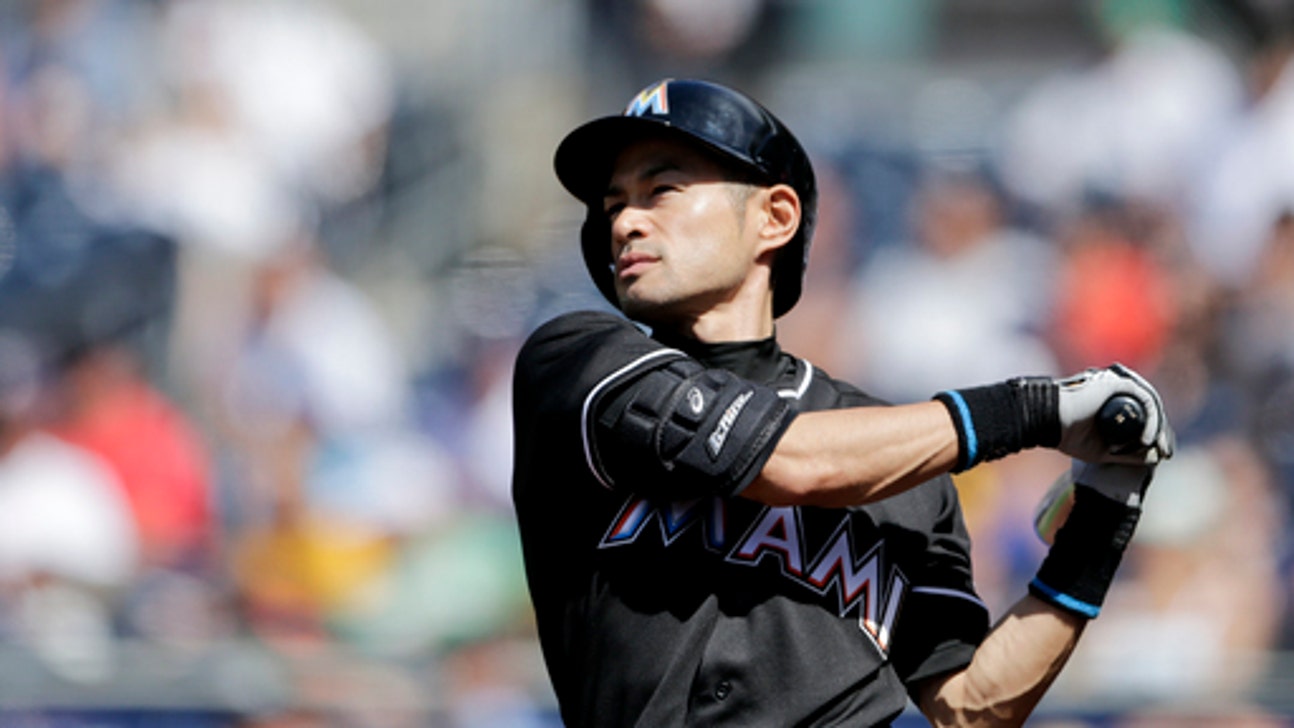
Suzuki's milestone raises familiar questions about context

When Japanese slugger Sadaharu Oh hit his 756th home run back in 1977, the reaction in the U.S. was predictably mild.
An impressive feat, of course - but hardly comparable to Hank Aaron's 755.
''It was regarded as a curiosity,'' baseball historian John Thorn said Thursday. ''At that time, the perception was that the quality of play in the Japanese majors was at best the equivalent of Triple-A.''
Nearly four decades later, another Japanese star has surpassed a lofty mark set by one of baseball's most famous players - with the help of stats accumulated overseas. On Wednesday night , Ichiro Suzuki reached 4,257 hits in the Japanese and North American major leagues, passing Pete Rose's total from Major League Baseball. Although the accomplishment was met with admiration around the sport, it's not easy to put Suzuki's feat in context.
Rose remains the MLB hit leader with 4,256. Suzuki had 1,278 hits for Orix in Japan's Pacific League (1992-00), and on Wednesday he increased his total to 2,979 with the Seattle Mariners, New York Yankees and Miami Marlins. Rose was quoted recently by USA Today as saying: ''I'm not trying to take anything away from Ichiro, he's had a Hall of Fame career, but the next thing you know, they'll be counting his high-school hits.''
The fanfare surrounding Suzuki is nowhere near what Rose received when he passed Ty Cobb's hit total in 1985. But Suzuki has established himself as a star in the U.S., and that may make it easier for people to take his Japanese stats seriously. That's in contrast to Oh, who hit 868 home runs over 22 seasons with the Yomiuri Giants, but was never a familiar face in America the way Suzuki is.
Suzuki was 27 when he made his debut in the U.S. with the Mariners in 2001. He hit .350 that year with 56 stolen bases and won American League MVP honors.
''I think he's one of the premier hitters ever,'' Oakland manager Bob Melvin said. ''He got his hits (in Japan) and he's working on moving up on 3,000 here - one of the great hitters in the game.''
Thorn describes Japan's top level of baseball as somewhere between the U.S. major leagues and the top of the minors.
''It's quadruple-A,'' he said. ''The best players in the Japanese majors would be outstanding players here in the U.S., and you see it every year.''
But that doesn't mean Suzuki's hits in Japan were the same as Rose's in the U.S. - especially since Rose's total doesn't include what he did in the minors.
''While you think you're measuring apples against apples, it's really apples against boxcars,'' Thorn said.
Minnesota manager Paul Molitor was Suzuki's hitting coach in 2004 with Seattle when he set MLB's single-season hit record with 262 - but when asked recently about whether Suzuki's career total should make him baseball's hit king instead of Rose, Molitor wasn't buying it.
''No offense to my friend, but no,'' Molitor said. ''It's right to acknowledge the combination, but I do think there has to be something separate. I don't know how you compare the leagues and say they are the same.''
This conundrum is nothing new. It's hard to compare stats from different leagues and countries, and it's also hard to compare them within MLB across different eras. Bob Gibson posted a 1.12 ERA in 1968, and the mound was then lowered to 10 inches. Was Gibson's mark any more impressive than Pedro Martinez's 1.74 in 2000?
The same types of questions surround Rose and Suzuki, two different players with different styles - whose careers followed very different paths.
''There's always a story behind the stats, which is good, because that's what statistics are all about,'' Thorn said. ''They're signposts. They are not the royal road to knowledge.''
Regardless of whether he deserves the same accolades as Rose, Suzuki's career has been a marvel. He's now closing in on his 3,000th MLB hit, a staggering total considering how long he played in Japan before coming to the U.S. That's what Texas catcher Bobby Wilson, a former teammate of Suzuki's, wants to focus on.
''His numbers are amazing, I'll just say that. He's a good friend, a great teammate and I'd like to see him get 3,000 hits here,'' Wilson said. ''I'd rather not comment on whether it should be a record, but just what he's done in Major League Baseball itself is incredible after getting a late start.
''Who's to say that he couldn't have broken `that' record? But his career accolades are pretty amazing, and I'm happy for him for sure.''
---
AP Sports Writer Dave Campbell in Minneapolis contributed to this report.










